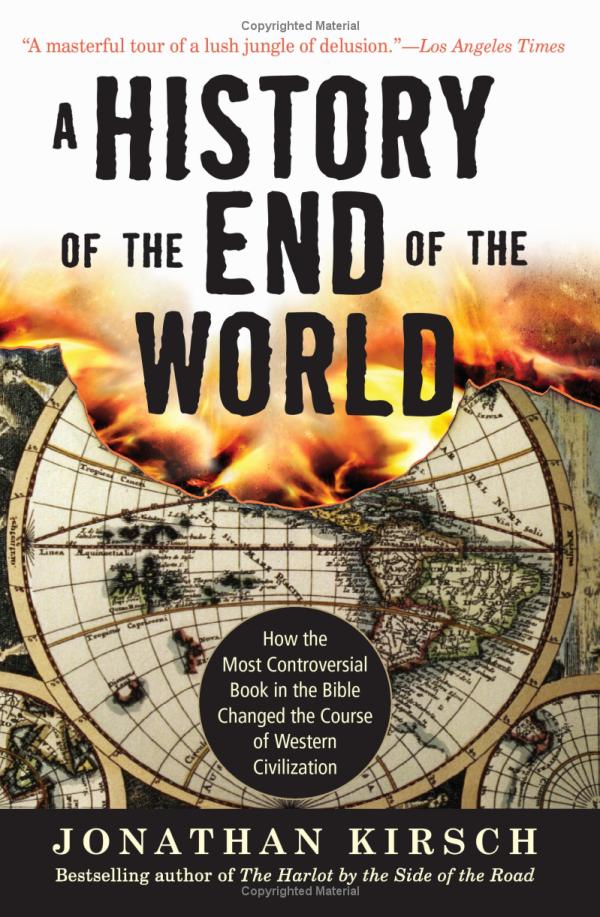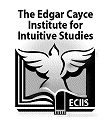| Edited by HENRY REED, Ph.D. |
October 6, 2008
|

How Do You Think the World Ends?
Henry Reed
Shifting one’s perception, from seeing the glass as half empty to seeing it as half full, creates a minor miracle. It changes an impoverished world into one of opportunity. Does that count also as an actual change in the real world? Some say yes, some say no. Could this difference in understanding be fueling today’s culture wars?
In his book, A history of the end of the world: How the most controversial book in the Bible changed the course of western civilization, Jonathan Kirsch presents the history of the book of Revelation, from the time of conception through it’s impact upon current events. Revelation’s basic theme is that history is something God planned in advance. There are good guys and there are bad guys, both with support from divine sources. The end is preceded by a major battle between Good and Evil. Good finally triumphs and Earth is restored to its rightful condition of peace and harmony. We all know that story.
Revelation has some thematic elements so common to human nature that it seems to justify, if not invite, certain human predilections. Apocalyptic (the Greek equivalent of the Roman term for "what will be revealed") books, authored through divine intervention, was common at the time Revelation came into being. One Jewish source mentions over seventy other "future histories," or divinely channeled accounts of the end of the world, which were held in sacred regard. Apocalypses were found among the Dead Sea scrolls. End of the world prophecies existed in most other cultures, each having an equivalent thematic form.
Kirsch places the first apocalypses around the time of Zoraster in Persia. He suggests that the Hebrew versions began after Alexander the Great invaded Judea, when Jewish culture was under threat of the foreign, and much more liberal, culture of Greece. The Hebrew apocalypses thus emerged to combat the cultural invasion by casting anything Greek as part of the "evil empire," while divisions among the Jewish people began to reflect this difference in values. Thus the apocalypses became a tool in what we now call the "culture wars." Kirsch describes a pattern, manifesting from Biblical times on up to our modern era, where those who perceive they are suffering because of the behaviors of other groups of people, who have heinous values, and look forward to the day when Good will triumph over the Evil ones to create a New Age of Peace. Thus Revelation seems to be a timeless archetype of political struggle powered by religious fervor.
From the earliest time, however, the theme that the "end of the world is at hand" proved to be an unfulfilled claim. To bolster the power of the apocalypses, therefore, it became useful to view these texts as symbolic, leading to various interpretations of their meanings. Augustine (354-430, A.D.), for example, an influential theologian of the early Christian church, argued that Revelation shouldn’t be taken literally, but as an allegory of the "moral conflicts within each person." Kirsch traces the history of Revelation as it continues into the New World, firing the imagination of the Pilgrims. It played a role in Joseph Smith’s founding of the Mormans. It plays a role today in the thinking of the current United States administration. It continues to fit the way people experience their struggles.
One interpretation, however, that Kirsch never mentions, is the one that two influential symbolists independently envisioned. Edgar Cayce, operating from a deep intuition, and Carl Jung, a psychiatrist who studied comparative religion and mythology, both saw Revelation as a blueprint for a radical shift in consciousness. In this interpretation, Revelation is a process of enlightenment that changes the person’s perception of reality, especially that of the human-God relationship. Cayce identified the experience as coming to know oneself as an individual yet one with God. Carl Jung interpreted the Christ symbol as a portent of a transformation of consciousness similar to Cayce’s description. After such an experience, the person lives in a totally different world.
If Revelation is symbolic of an inner process, can it tell us anything about the future of the world? Suppose many people were to experience enlightenment. Would the world "out there" become different because so many people are experiencing reality in a new and different way? Edgar Cayce speaks of the return of Christ as an inner event that more and more people will come to experience. Jung predicted an increase in this transformation as reflecting the coming "Aquarian Age." Both men saw consequences for world history arising from the collective effect of the transformation of individual lives. However, whether ridding the world of evil requires an external extermination or an internal transformation seems to be a question that plagues us today. A reconciliation of these two viewpoints is probably in order.
|
|




